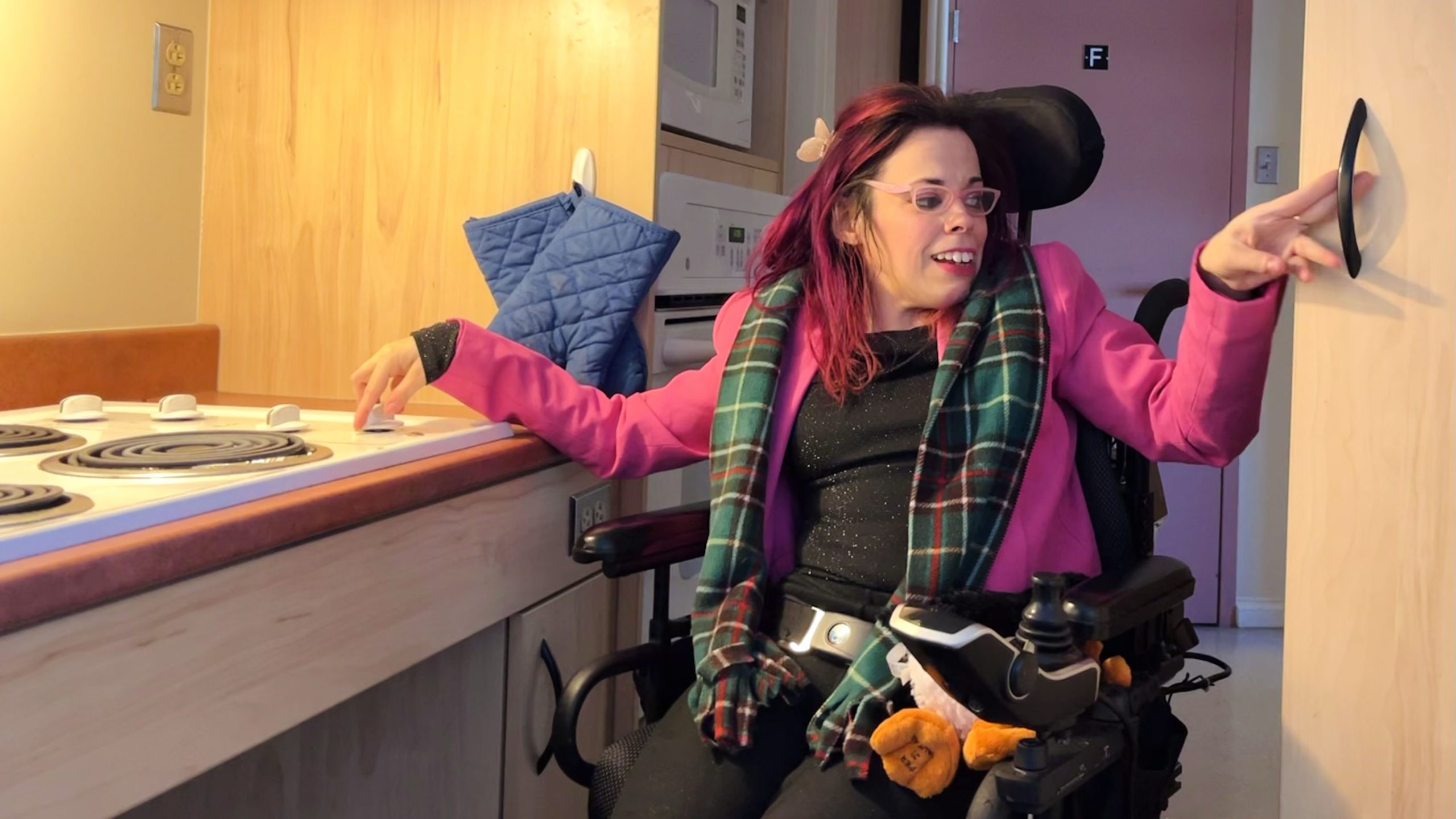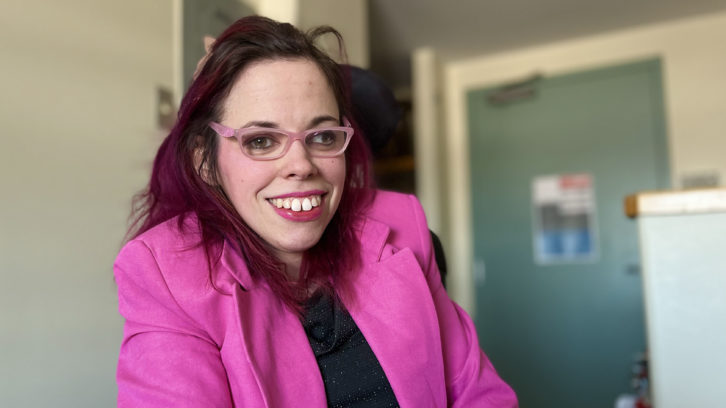Halifax tenants struggle to find wheelchair-accessible apartments
Fewer units for rent makes hunt for suitable housing 'exhausting'

caption
Carrie-Ann Bugden in her kitchen at MSVU on Feb. 1. Bugden enjoys cooking, so having an accessible kitchen is very important to her.With rental vacancy in Halifax at a record low, Carrie-Ann Bugden is struggling to find a wheelchair-accessible apartment.
They’re “like unicorns,” said Bugden, who doesn’t qualify for provincial housing services since she isn’t a Nova Scotia resident.
Bugden moved from Newfoundland last September to attend Mount Saint Vincent University (MSVU). She’s been living in residence while looking for a place to rent once the semester ends, but the search has been “exhausting.”
CMHC’s latest rental market report states the city has a vacancy rate of one per cent and prices went up 8.9 per cent — an all-time high, according to market analyst Kelvin Ndoro. Related stories
Bugden grew up in St. John’s and said the majority of people there who have physical disabilities live in poverty. Bugden had two jobs and an accessible apartment she was in for 11 years. She has cerebral palsy.
Her plans to pursue academia and earn a PhD in psychology brought Bugden to Halifax.
“I thought it was going to be better here. It’s not,” Bugden said, adding she doesn’t know how people with disabilities “make it here — how do they go out and afford a $1,500 apartment when they’re going to school?”
Although MSVU has been “wonderful,” Bugden said she fears being isolated from support systems if she stays through the summer, when many dorms are converted into hotel rooms.
Joanne Bernard, president of Easter Seals Nova Scotia, said a typical 100-unit building in the city may have two or three accessible apartments, but they are not kept for persons with disabilities.
“So even if someone with a disability can afford an accessible apartment, there’s no guarantee they will actually be able to move into one,” she said.
Another Haligonian struggling to find wheelchair-accessible living is Agnes Larkin, 65, who has progressive multiple sclerosis.
“I really feel that there should be a registry of wheelchair-accessible apartments available — instead of having to call every single building,” Larkin said.
Halifax is on its way to becoming the first municipality in the province to have a rental registry, with a proposed bylaw set to return to council for a second reading expected for sometime next month.
But the bylaw wouldn’t require landlords to provide accessibility information since that’s dealt with at the provincial level, said Coun. Waye Mason.
Mary-Jo Monk, executive director of 211 Nova Scotia, said there’s no existing registry for accessible rentals. The 211 line aims to help people find and navigate housing resources, including provincial programs.
If nothing is available, Larkin said she may need to move into a long-term care facility, which with complete cognitive capacity is not something she would welcome.
Long-term care has also crossed Bugden’s mind.
“I’m 33 years old — a professional, being in a nursing home — are you kidding me?” she said, tearing up.
Bugden said she wants to see more support systems in Halifax that can provide advocacy services and individual case management to help with the search for accessible housing, regardless of home province.

caption
Carrie-Ann Bugden is struggling to find a wheelchair-accessible apartment in Halifax.Right now, she’s working on getting a job and making enough money to find a suitable apartment.
“I want to experience peace and be able to do everything I want to do, regardless of my wheelchair or my disability,” she said.
About the author
Ella Macdonald
Ella Macdonald (she/her) is an aspiring video reporter and photojournalist with an interest in world affairs and health reporting. Originally...
